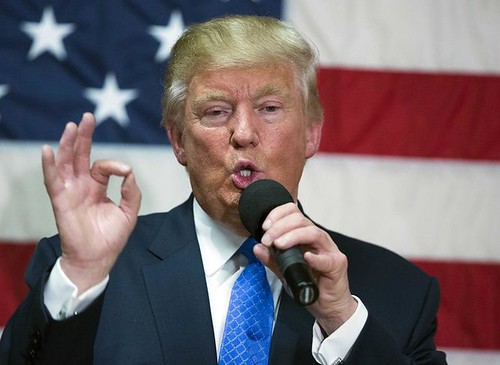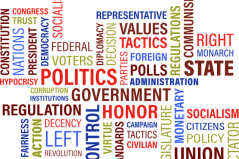Just a compliment? Why positive gender stereotypes can be more harmful than they seem

keywords:
compliments / benevolent sexism / #MeToo / prejudice / stereotypes
Just a compliment? Why positive gender stereotypes can be more harmful than they seem
Most people would probably agree that “women can’t drive” is a sexist statement. But what about saying that “women are nurturing”? Isn’t that just a nice compliment? At first glance, these kinds of gender stereotypes often appear relatively harmless. In reality, they are anything but: seemingly positive gender stereotypes play a crucial role in reinforcing traditional gender roles...
/ moreToward the LGBTQ+ Friendly Workplace: Are We There Yet?
keywords:
LGBTQ / Workplace Issues / Diversity / Inclusion / prejudice
Toward the LGBTQ+ Friendly Workplace: Are We There Yet?
Gender and sexual minorities in the United States still face discrimination and a number of challenges. What are the workplace experiences of LGBTQ+ individuals and is the modern organization LGBTQ+ friendly? Read more to find out.
 With the 50th anniversary of the Stonewall riots marked by June of 2019, it is important to reflect on advances for the LGBTQ+... / more
With the 50th anniversary of the Stonewall riots marked by June of 2019, it is important to reflect on advances for the LGBTQ+... / more
Invoking Pocahontas: An act of racism disguised as politics

keywords:
racism / prejudice / Native American / Donald Trump
Invoking Pocahontas: An act of racism disguised as politics

At a recent event honoring Navajo Code Talkers who are World War II Veterans, President Donald Trump stated, "You were here long before any of us were here. Although we have a representative in Congress who they say was here a long time ago. They call her Pocahontas"...
/ moreEmpathy and prejudice after attacks in Paris and Beirut

keywords:
terrorism / Construal Level Theory / terror management theory / fear / prejudice / over-generalization / categorization
Empathy and prejudice after attacks in Paris and Beirut
In this blog, I will try to explain why we showed more empathy for victims in Paris than in Beirut, and how feelings of fear after such a terrorist attack can lead to prejudice against out-groups, especially against Muslims. / more
Does it matter if people are aware of their implicit racial bias?
keywords:
implicit attitudes / racial bias / prejudice
Does it matter if people are aware of their implicit racial bias?
In this blog post, I discuss how people respond to information about their implicit racial bias—automatic attitudes and beliefs that favor one ethnic group over another. Although people can be defensive, emerging research suggests there are benefits to accepting implicit racial bias and being aware of this subtle prejudice. / more
Does discrimination fit a prototype?
keywords:
discrimination / prejudice / prototypes
Does discrimination fit a prototype?
In this blog post, I discuss what information people use to decide whether a behavior constitutes discrimination. Similar to the way people organize categories and identify objects, I review research showing that people rely on prototypes when deciding what is and is not discrimination. / more
Political ideology is more than just “liberal” and “conservative”

keywords:
political psychology / ideology / need for cognitive closure / policy attitudes / prejudice / discrimination
Political ideology is more than just “liberal” and “conservative”
In this blog post, I describe new evidence that thinking about political ideology on a single liberal/left to conservative/right spectrum masks important nuances in the origins of political ideologies and in the way that people apply those ideologies to important judgments, including those of other people (i.e., prejudice). / more
Everyone is prejudiced, too
keywords:
politics / prejudice / liberals / conservatives
Everyone is prejudiced, too
In this blog post, I will discuss new research in political psychology that is changing our understanding of what prejudice is, and who is prejudiced. / more
After Trayvon: The science of protecting innocent black men
keywords:
Trayvon Martin / prejudice / stereotypes / IAT / in-group / out-group
After Trayvon: The science of protecting innocent black men
Even though the death of Trayvon Martin drew much public attention in the last year and a half, the shooting of an unarmed, innocent black male is in no way an isolated case in America. Jonathan Ferrell, a 24-year-old African-American man in Florida, was recently killed by police officers when he was looking for help after crashing his car. Roy Middleton, a 60-year-old Florida man, was crippled after the sheriff’s deputies mistook him for a car thief and shot him... / more
The Double Edged Passion
The Double Edged Passion
Humans are passionate creatures. Our passions drive us, gives us a sense of belonging, and unite us as few other things can. Still, there are only a couple of passions that have been constants down the ages, passions that people from every place and culture can agree on. Love is one, but another is that "those no-good bastards over there are trouble." Of course, we quibble endlessly over the exact definition of "those" -- every culture, pretty much, has had... / more

